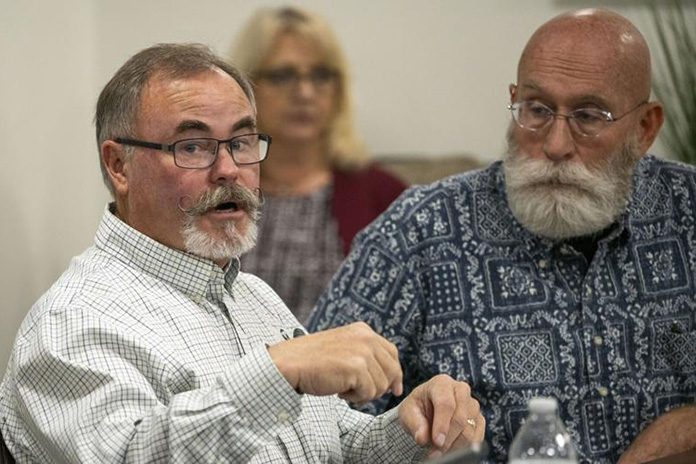
Two months after a Columbia Development Authority meeting rife with tension and veiled accusations of misconduct, board members reviewed a potential executive director performance evaluation procedure and form, but made no moves forward.
At the CDA’s regular meeting Nov. 26, Chair Kim Puzey and board member Joe Taylor presented what they believe will be a fair process to follow for evaluating the organization’s staff leadership.
The performance review would occur annually, and the board would give feedback in detail during an executive session and provide a summary during the open session. That review would serve as the basis for contract negotiations. The proposed assessment would include feedback on categories for administration, community relations, financial management and legal compliance, and commission relations.
“It continues to be a work in progress,” Puzey said after the meeting. “We’re trying to get as simple a process as possible that’s fair to both parties. I think we’ve got a pretty good start.”
However, Puzey would not give a timeline for when the form would be accepted and used, citing other priorities as more important, including paying the organization’s bills and the lawsuit the CDA is facing from Umatilla County over a March vote about land allocation.
Greg Smith, who also is a state representative and private consultant, holds the CDA’s executive director position.
Creating a review process came up during the board’s Sept. 20 meeting when members criticized Smith’s work. Smith holds numerous full-time jobs and received a raise through a federal grant that incorrectly claimed board approval of the salary increase. Smith said during the meeting that he works 24/7 for each of his jobs, implying that despite his time cards indicating he’d worked eight hours on days when he was doing business as a state representative, he also was doing — or available to do — work for the CDA.
Smith also said he “owned” the inaccurate statements in the grant application that claimed the board had approved the salary raise, though he denied knowing about the statements prior to the board’s vote to approve the grant application.
However, some members of the board were unhappy with Smith’s answers.
At the time, Kelly Doherty represented the Port of Morrow instead of Taylor. She and J.D. Tovey, the representative for the Confederated Tribes of the Umatilla Indian Reservation, were particularly vocal during the Sept. 20 meeting.
The two asked the board to create a formal evaluation process for the executive director, which was approved in a unanimous vote.
Since then, Puzey and Taylor, after replacing Doherty, have adapted the Port of Morrow’s evaluation to fit the CDA’s needs. They presented their idea during the board’s informational report with a possible work session part of the November meeting.
There was little discussion and no decisions on how to proceed.










